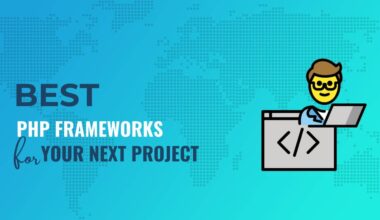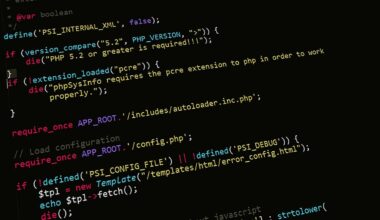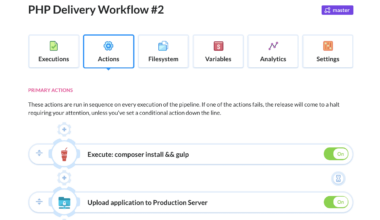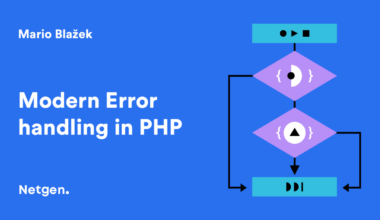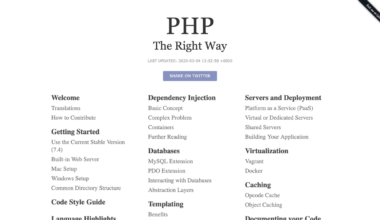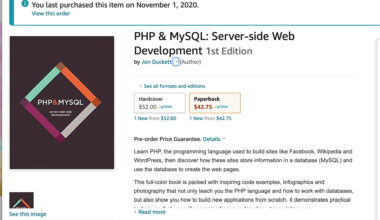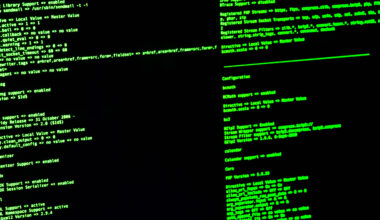Introduction: Why PHP skills are important
As a PHP developer, it’s essential to keep up with the latest trends, techniques, and best practices to stay ahead of the curve. PHP is a widely-used server-side scripting language that powers over 79% of websites on the internet. Therefore, it’s crucial to have excellent PHP skills to build and maintain high-quality web applications.
PHP skills are not only essential for web developers and designers but also for business owners who want to create dynamic and interactive websites. With PHP, you can create custom web applications that meet your business needs, such as e-commerce websites, content management systems, and social networking sites.
Furthermore, PHP skills are in high demand in the job market. According to Indeed, the average salary for a PHP developer in the US is around $84,000 per year. Therefore, if you want to pursue a career in web development, having excellent PHP skills can help you land your dream job and advance your career.
In this article, we will discuss the basics of PHP programming, advanced techniques, and best practices for PHP development. We’ll also provide tips and resources to help you supercharge your PHP skills and stay ahead of the competition.
Whether you’re a beginner or an experienced PHP developer, there’s always room for improvement. By mastering PHP skills, you can build robust and scalable web applications that meet your business needs and exceed your users’ expectations. So, let’s dive into the world of PHP programming and take your skills to the next level.
Understanding PHP Basics
Before diving into advanced PHP techniques, it’s essential to understand the basics of PHP programming. PHP is a server-side scripting language that is used to create dynamic web pages. Here are some essential PHP concepts to get you started:
Variables:
Variables are used to store information such as numbers, strings, and arrays. In PHP, variables start with a dollar sign ($), followed by the variable name. For example: $name = “John Doe”;
Functions:
Functions are used to perform specific tasks, such as manipulating strings, performing calculations, and accessing databases. PHP has many built-in functions, but you can also create your own functions to perform custom tasks.
Conditional Statements:
Conditional statements are used to test conditions and execute specific code based on the result. The most common conditional statements in PHP are if, else, and elseif. For example:
if ($age < 18) {
echo "You are not old enough to vote.";
} else {
echo "You can vote in the next election.";
}
Loops:
Loops are used to execute a block of code repeatedly until a specific condition is met. The most common loops in PHP are for, while, and do-while. For example:
for ($i = 0; $i < 10; $i++) {
echo $i;
}
Arrays:
Arrays are used to store multiple values in a single variable. PHP has two types of arrays: indexed arrays and associative arrays. For example:
$colors = array("red", "green", "blue");
$ages = array("John" => 30, "Jane" => 25, "Bob" => 40);
These are just a few of the essential PHP concepts that you need to know to get started with PHP programming. To learn more about PHP basics, you can refer to the official PHP documentation or online tutorials.
Resources:
Advanced PHP Techniques
Once you have a good grasp of the basics, it’s time to move on to advanced PHP techniques. These techniques can help you write more efficient and scalable code, improve the performance of your web applications, and enhance the user experience. Here are some of the most critical advanced PHP techniques to supercharge your skills:
Object-Oriented Programming:
Object-oriented programming (OOP) is a programming paradigm that uses objects to represent real-world entities and encapsulates data and functions into classes. PHP has excellent support for OOP, and learning it can help you write more modular and reusable code. Here’s an example of a simple class in PHP:
class Car {
private $make;
private $model;
public function __construct($make, $model) {
$this->make = $make;
$this->model = $model;
}
public function getMake() {
return $this->make;
}
public function getModel() {
return $this->model;
}
}
Namespaces:
Namespaces are used to organize code into logical groups and prevent naming conflicts. PHP supports namespaces, and using them can help you write more maintainable and reusable code. Here’s an example of a namespace in PHP:
namespace MyNamespace;
class MyClass {
// class code here
}
Error Handling:
Error handling is a critical aspect of PHP development, and knowing how to handle errors can help you create more robust and reliable web applications. PHP has built-in error handling functions, such as error_reporting and set_error_handler, that you can use to handle errors and exceptions. Here’s an example of error handling in PHP:
try {
// code that might throw an exception
} catch (Exception $e) {
// handle the exception
echo "Error: " . $e->getMessage();
}
Caching:
Caching is used to store frequently accessed data in memory and reduce the number of database queries. PHP has several caching mechanisms, such as APC and Memcached, that you can use to improve the performance of your web applications. Here’s an example of caching in PHP using APC:
if (apc_exists('my_data')) {
$data = apc_fetch('my
Best practices for PHP development
As a PHP developer, it’s essential to follow best practices to write clean, maintainable, and efficient code. Here are some of the best practices for PHP development that you should keep in mind:
1. Use a PHP Framework:
Using a PHP framework can help you write code faster, reduce the likelihood of errors, and improve the security of your web applications. Some popular PHP frameworks are Laravel, Symfony, and CodeIgniter.
2. Write Secure Code:
Writing secure code is crucial to protect your web applications from attacks. You should always use prepared statements instead of concatenating variables in SQL queries to prevent SQL injection attacks. You should also sanitize user input to prevent cross-site scripting (XSS) attacks.
3. Use Composer:
Composer is a dependency manager for PHP that allows you to manage packages and libraries for your PHP projects. Using Composer can help you manage dependencies more efficiently and keep your code up-to-date.
4. Use Git for Version Control:
Using Git for version control can help you manage and track changes to your codebase more effectively. Git allows you to roll back changes, collaborate with other developers, and manage multiple versions of your code.
5. Follow PSR Standards:
PSR (PHP Standards Recommendations) is a set of coding standards and best practices for PHP development. Following PSR standards can help you write code that is easy to read, maintain, and understand by other developers.
6. Optimize Your Code:
Optimizing your code can help improve the performance of your web applications. You should always use caching mechanisms, such as APC and Memcached, to reduce the number of database queries. You should also minify your CSS and JavaScript files to reduce the file size and improve page load times.
By following these best practices, you can write high-quality PHP code that is easy to maintain, secure, and performant. Remember to keep learning and stay up-to-date with the latest trends and techniques in PHP development.
Resources:
Final Thought: Continuing to Improve Your PHP Skills
As a PHP developer, it’s important to continue learning and improving your skills to stay up-to-date with the latest trends and techniques in PHP development. Here are some tips and resources to help you supercharge your PHP skills:
1. Attend PHP Conferences:
Attending PHP conferences is an excellent way to learn from experienced developers and network with other PHP developers. Some popular PHP conferences are PHP UK, PHP World, and ZendCon.
2. Participate in PHP Communities:
Participating in PHP communities, such as PHP.net and PHPDeveloper.org, can help you stay up-to-date with the latest PHP developments and connect with other PHP developers.
3. Practice, Practice, Practice:
Practice is the key to becoming a better PHP developer. You can practice by building small projects, contributing to open-source projects, and participating in coding challenges.
4. Read PHP Blogs and Tutorials:
Reading PHP blogs and tutorials can help you learn new techniques and stay up-to-date with the latest PHP developments. Some popular PHP blogs are SitePoint, PHPDeveloper.org, and PHP.net.
5. Follow PHP Experts on Social Media:
Following PHP experts on social media, such as Twitter and LinkedIn, can help you learn from experienced developers and stay up-to-date with the latest PHP developments. Some popular PHP experts are Rasmus Lerdorf, the creator of PHP, and Cal Evans, the author of “The Joy of PHP.”
By following these tips and resources, you can continue to improve your PHP skills and stay ahead of the competition. Remember to keep learning and practicing, and don’t be afraid to ask for help when you need it.
Resources:












